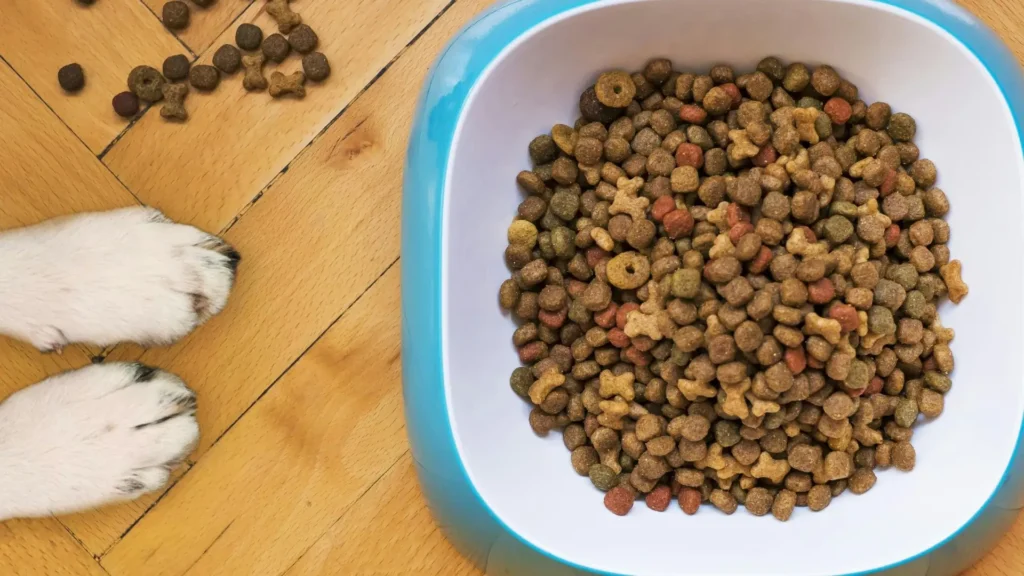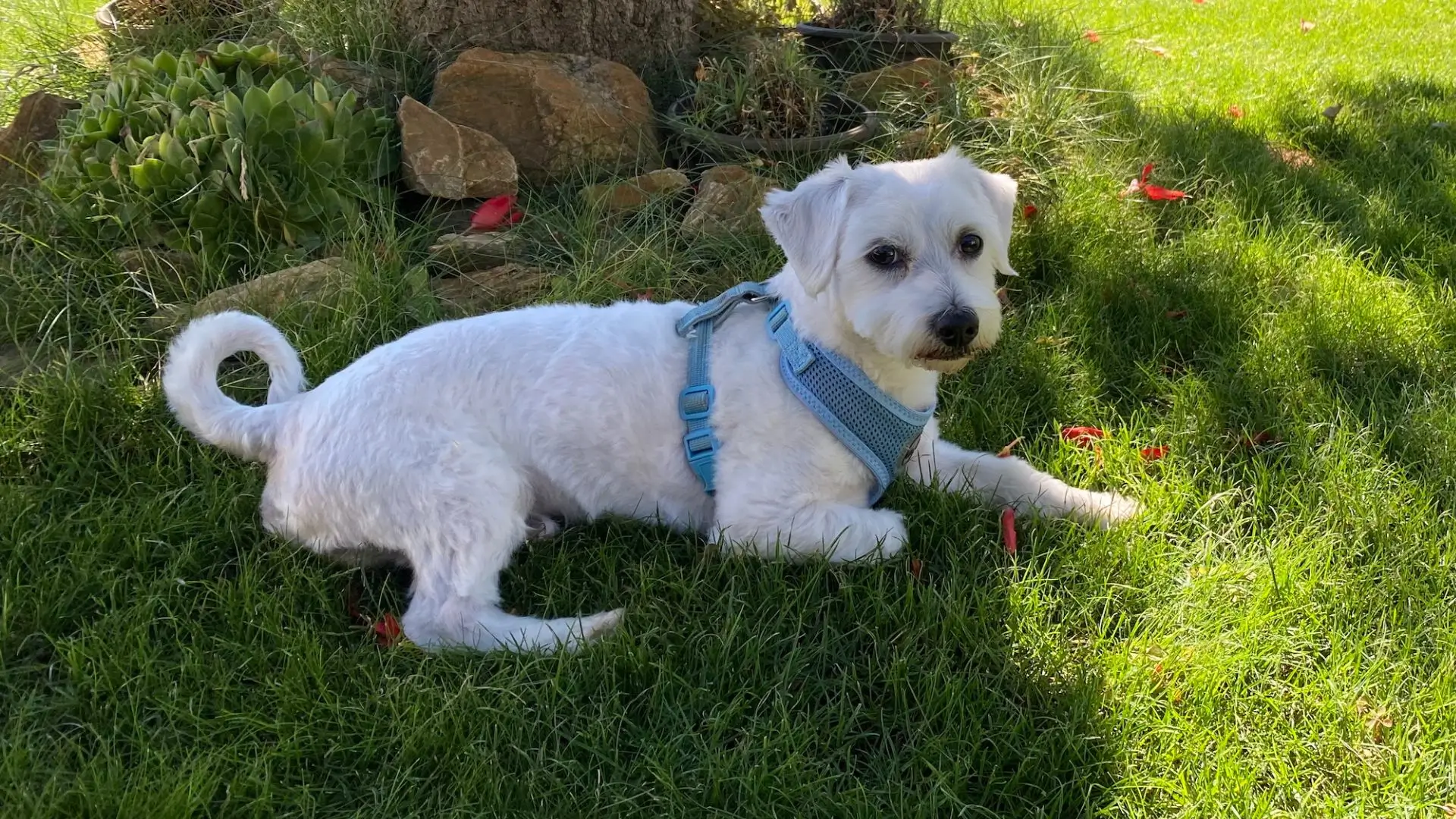That little white fluffball snuggled on your lap isn’t just a pet; they’re family. Gazing into those dark, expressive eyes, it’s natural to wonder, “How much time do we have together?” The thought of life without them is unimaginable. The good news is that the Maltese breed is blessed with a surprisingly long lifespan, and you have a remarkable amount of influence over it.
What’s the Typical Maltese Lifespan?
When you bring a Maltese into your home, you’re likely signing up for a long and beautiful friendship. On average, a healthy Maltese will live between 12 to 15 years. This is a fantastic lifespan for a canine companion, giving you many years of joy, cuddles, and playful antics.
However, that 12-to-15-year range is just an average. It’s not uncommon for well-cared-for Maltese to push well past that, reaching 16, 17, or even older. Many factors, from the day they are born to the daily care they receive in your home, play a role in where your individual dog will fall on this spectrum.
Generally, smaller dog breeds like the Maltese tend to live longer than their larger counterparts, but their longevity is not something to be taken for granted. It’s a gift that can be nurtured with knowledge and dedicated care.
Key Factors That Influence Your Maltese’s Lifespan
While genetics provide the initial blueprint for your dog’s health, their daily life and environment have a profound impact. Think of it as a partnership between nature and nurture. You, as the owner, are the lead partner on the “nurture” side, and your choices can dramatically affect your Maltese’s health, happiness, and ultimately, how long they live.
Genetics and Breeding: The Foundation of Health
A long, healthy life begins before you even bring your puppy home. The quality and ethics of the breeder are paramount. A responsible breeder is not just producing puppies; they are dedicated stewards of the breed. They conduct extensive health screenings on their breeding dogs to test for common hereditary conditions in the Maltese breed. This includes checks for heart defects, liver problems (like liver shunts), and joint issues (like patellar luxation).
By choosing a breeder who prioritizes health over profit, you are giving your puppy the best possible genetic start. Conversely, puppies from puppy mills or irresponsible backyard breeders are often born from parents who have not been health-tested. This significantly increases the risk of your dog developing congenital issues later in life, which can be both emotionally and financially devastating, and can tragically shorten their lifespan.
Diet and Nutrition: You Are What You Eat
The saying “you are what you eat” is just as true for our dogs as it is for us. Nutrition is one of the most critical, controllable factors in your Maltese’s longevity. Feeding a high-quality, balanced diet specifically formulated for small or toy breeds is essential. These formulas are designed with the right balance of protein, fats, and carbohydrates for their energy levels and have smaller kibble sizes that are easier for their little mouths to manage.

Obesity is a major threat to the health of a Maltese. Even an extra pound on such a small frame can put immense strain on their joints, heart, and other internal organs. It increases the risk of diabetes, heart disease, and respiratory problems. Carefully measure your dog’s food according to the guidelines on the packaging and your vet’s recommendations, and be mindful of treats. Treats should make up no more than 10% of their daily caloric intake. Avoid feeding them table scraps, as many human foods are too fatty, salty, or even toxic to dogs.
Exercise and Physical Activity: A Moving Dog is a Healthy Dog
While Maltese are quintessential lap dogs, they still need regular, moderate exercise to stay healthy. Daily physical activity helps maintain a lean body weight, strengthens their cardiovascular system, and keeps their joints limber. For a Maltese, this doesn’t mean running a marathon. A brisk 20-30 minute walk each day, combined with some indoor playtime, is usually sufficient.

Engaging in games like fetch with a small, soft toy or hide-and-seek can provide both physical and mental stimulation. Remember their delicate structure; avoid activities that involve a lot of jumping from heights, as this can put stress on their knees and back.
Preventative Veterinary Care: Your Greatest Ally
Your veterinarian is your partner in ensuring your Maltese lives a long and healthy life. Annual wellness exams are crucial for catching potential problems early when they are most treatable. For senior Maltese (typically 8 years and older), semi-annual check-ups are recommended.

These visits are about more than just vaccinations. Your vet will perform a full physical exam, listen to their heart and lungs, check their weight, and discuss any changes you’ve observed. This is also the time to ensure they are up-to-date on essential preventatives for fleas, ticks, and heartworm. One of the most overlooked but vital aspects of preventative care for this breed is dental hygiene, which is so important it deserves its own discussion.
Mental Stimulation and Emotional Well-being
A healthy mind contributes to a healthy body. Maltese were bred for companionship, and they thrive on interaction and attention. A bored or lonely Maltese can become stressed and anxious, which can negatively impact their physical health over time. Chronic stress can weaken the immune system and exacerbate other health issues.
Keep their brilliant minds engaged with puzzle toys, learning new tricks, and regular social interaction. Since they are prone to separation anxiety, it’s important to teach them to be comfortable alone for short periods from a young age. A happy, secure, and mentally engaged dog is less likely to suffer from stress-related health problems.
Common Maltese Health Problems That Can Affect Lifespan
Being aware of the health conditions common to the Maltese breed allows you to be a proactive and vigilant owner. Early detection and management are key to mitigating their impact on your dog’s quality of life and longevity.
In this article, we’ve already discussed common health issues in Maltese dogs and how to prevent them.
Care Through the Ages: Adjusting for Each Life Stage
Your Maltese’s needs will change as they grow. Tailoring their care to their specific life stage is key to supporting their health from puppyhood to their golden years.
The Puppy Stage (0-1 Year)
This is the time for building a strong foundation. Focus on a high-quality puppy food to support their rapid growth. Crucial socialization during this period will help them grow into a well-adjusted adult. This is also the time for their initial vaccination series, deworming, and discussions with your vet about the right time for spaying or neutering, a decision which itself has been shown to contribute to a longer life by preventing certain cancers and uterine infections.
The Adult Stage (1-8 Years)
This is the maintenance phase. Transition to an adult dog food and establish a consistent routine for feeding, exercise, and grooming. Annual vet visits and consistent dental care are paramount during these prime years. Continue with training and mental enrichment to keep your bond strong and their mind sharp.
The Senior Stage (8+ Years)
As your Maltese enters their golden years, they become more precious than ever. Your vigilance and care need to increase. Switch to a senior diet, which is often lower in calories and may contain supplements like glucosamine for joint health. Exercise should become gentler—shorter, more frequent walks instead of one long one. Increase vet visits to twice a year to screen for age-related diseases like heart conditions, kidney disease, and arthritis. Make their environment more comfortable with orthopedic beds, ramps to get onto furniture, and non-slip rugs on slick floors.
A Checklist for a Longer Maltese Life

Feeling overwhelmed? Don’t be. Most of these practices will quickly become a natural part of your routine. Here is a simple checklist of the most impactful things you can do:
- Choose a Reputable Breeder: Start with the best possible genetic foundation.
- Feed a High-Quality Diet: Provide premium, age-appropriate food and measure every meal.
- Maintain a Healthy Weight: Prevent obesity at all costs. You should be able to feel their ribs easily.
- Prioritize Dental Care: Brush their teeth daily and schedule professional cleanings as recommended by your vet.
- Provide Daily Exercise: A daily walk and some playtime are non-negotiable for physical and mental health.
- Use a Harness, Not a Collar: Protect their delicate trachea from injury during walks.
- Never Miss a Vet Check-Up: Stick to an annual (or semi-annual for seniors) wellness exam schedule.
- Keep Up with Preventatives: Stay on schedule with flea, tick, and heartworm medication.
- Groom Regularly: Use grooming sessions to check their skin, coat, ears, and paws for any abnormalities.
- Offer Mental Enrichment: Keep their minds active with toys, training, and social time.
- Provide Endless Love: A secure, happy, and loved dog is a less-stressed and healthier dog.
Conclusion: Cherishing Every Moment
The Maltese lifespan of 12 to 15 years—and often longer—is a true gift. While we can’t control genetics or stop the clock from ticking, we have immense power to influence our dogs’ journey. The choices you make every single day regarding their diet, exercise, preventative care, and emotional well-being are the building blocks of a long, vibrant life.
By investing in proactive, thoughtful care, you are not just adding years to their life, but more importantly, adding life to their years. Every walk, every healthy meal, every tooth-brushing session, and every cuddle on the couch is an investment in your shared future. Enjoy every precious moment with your wonderful Maltese companion, knowing you are doing everything you can to make your time together as long and as beautiful as possible.

Leave a Reply